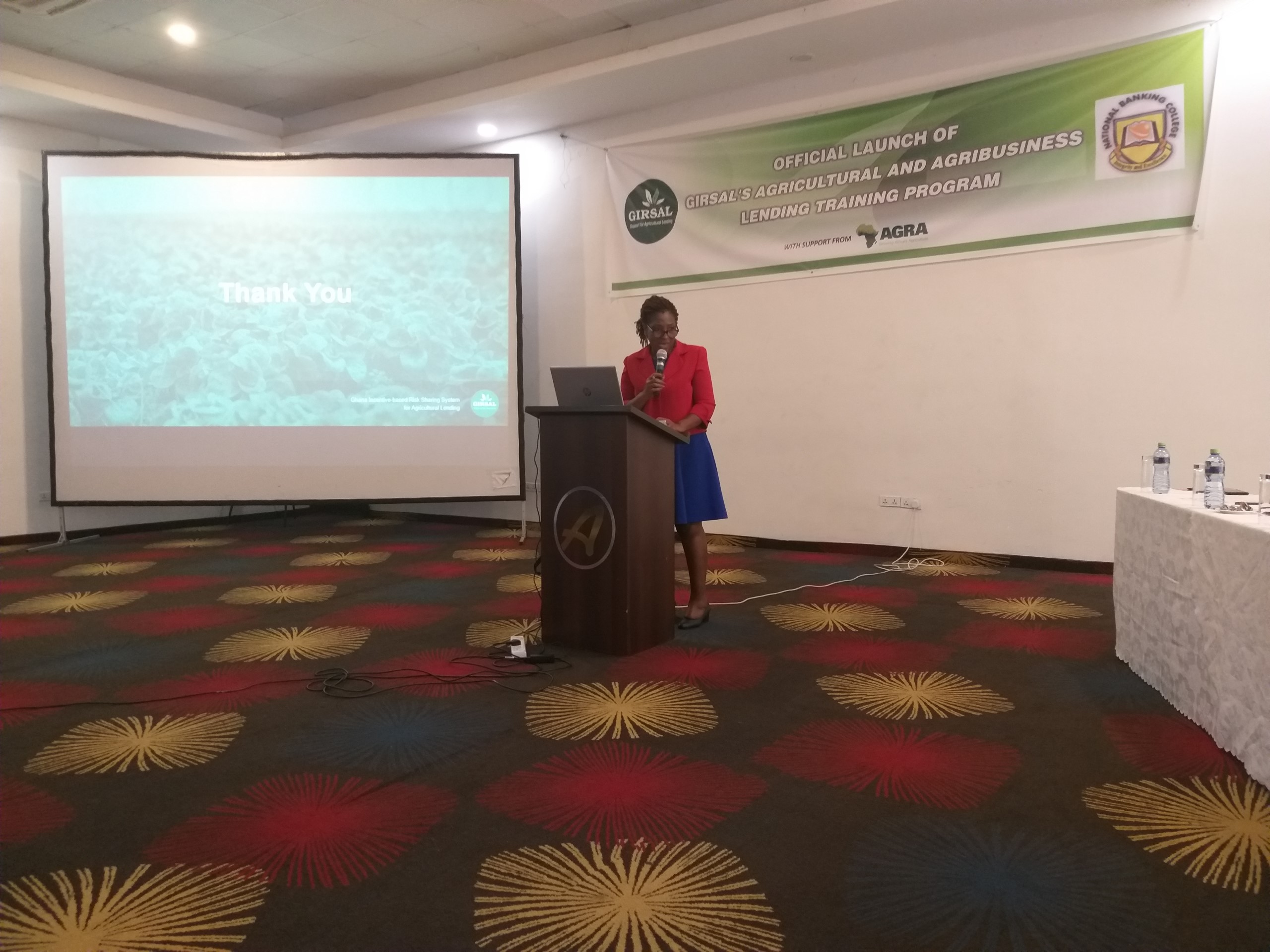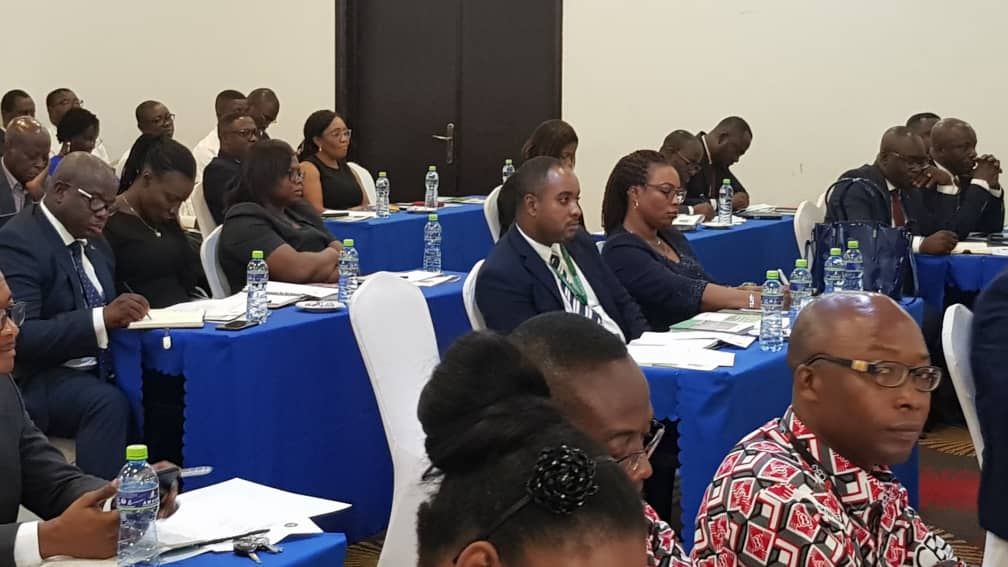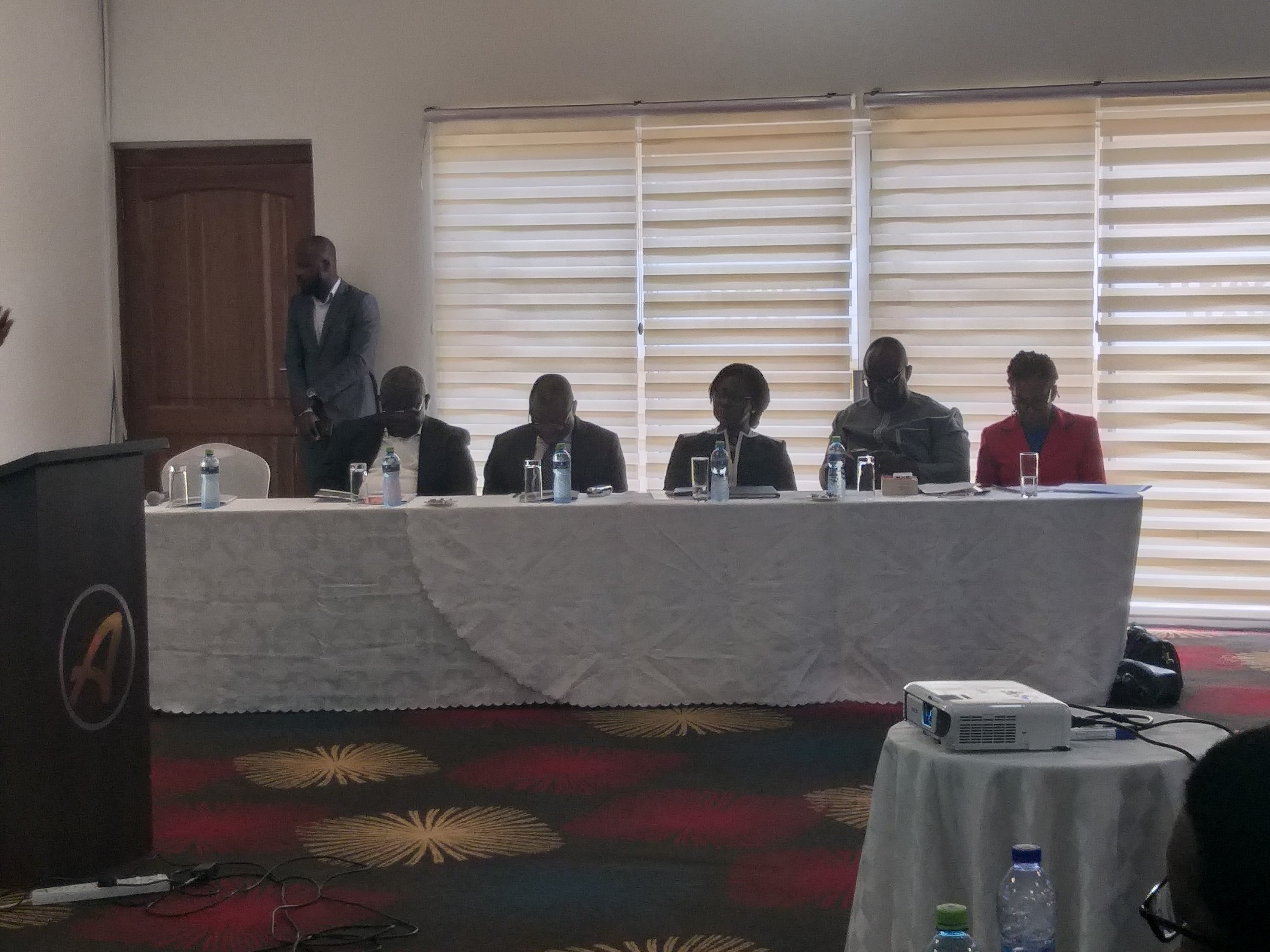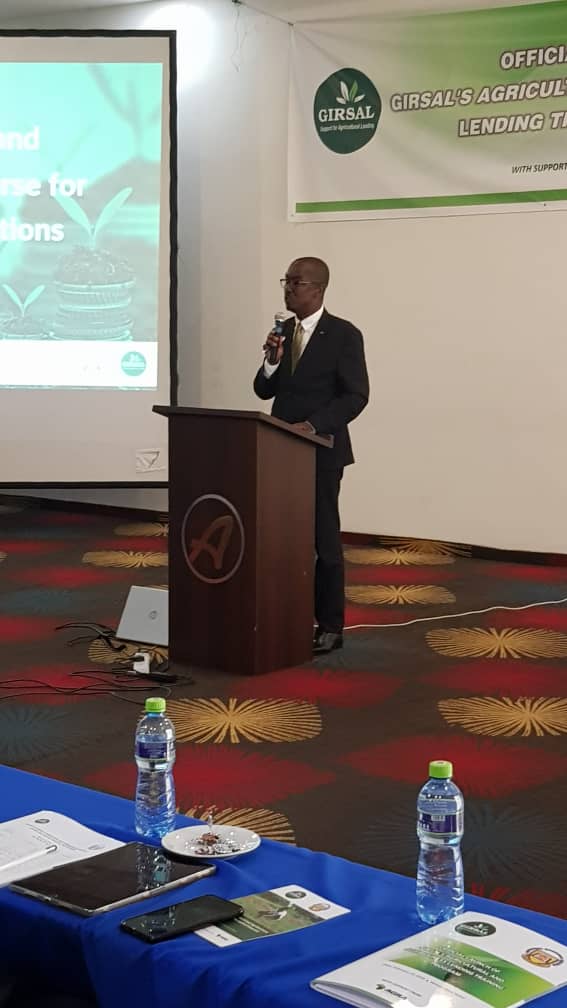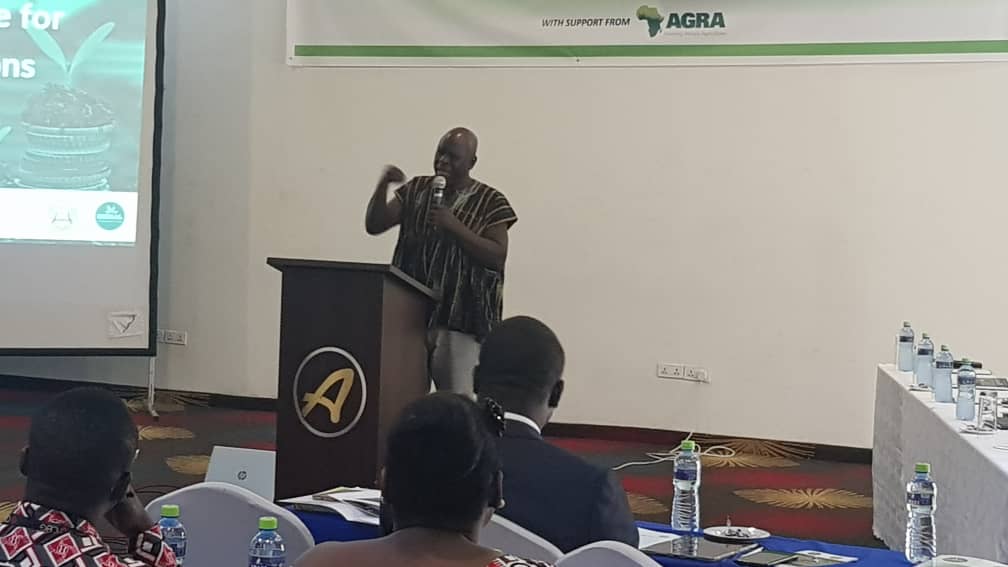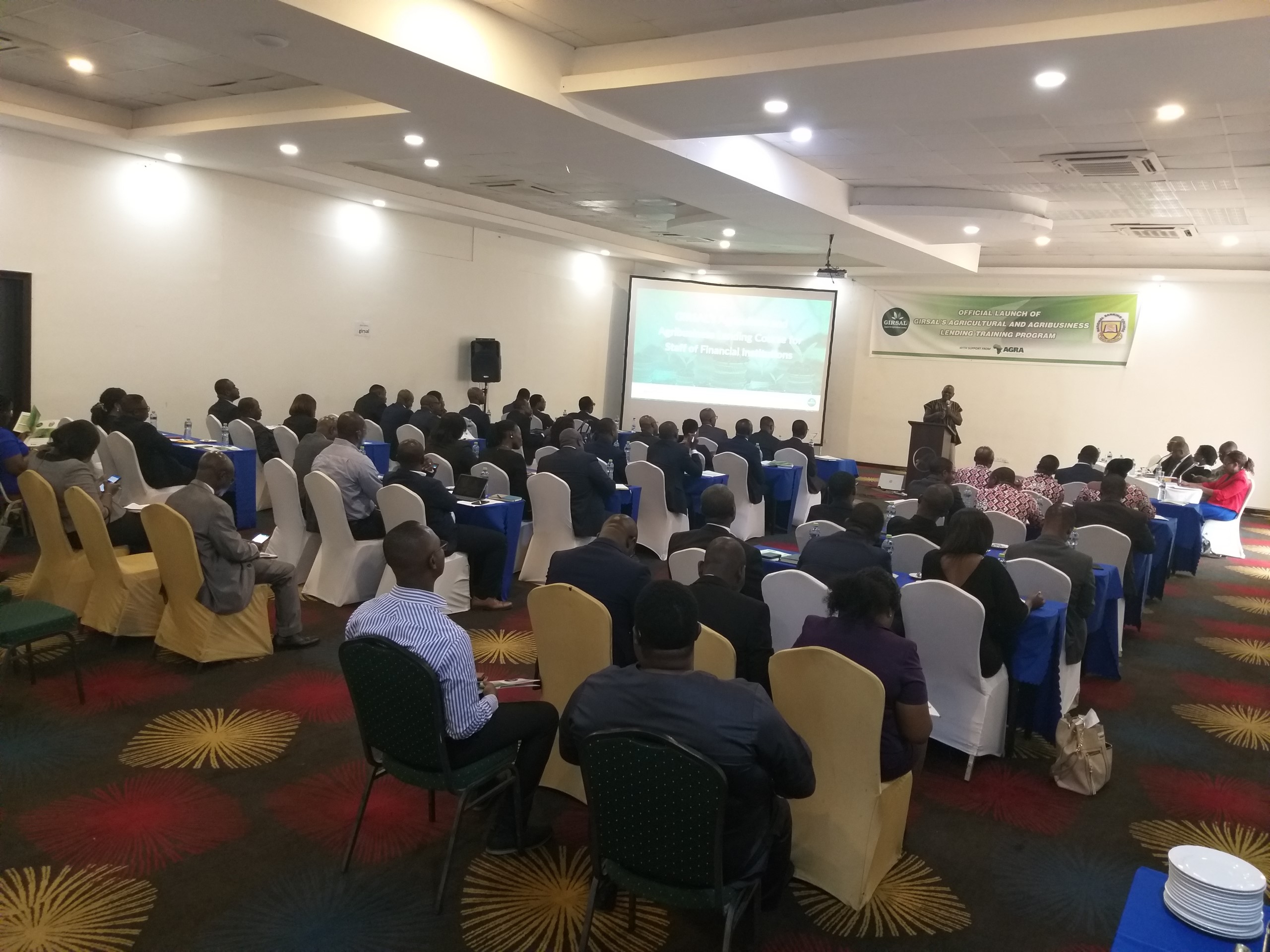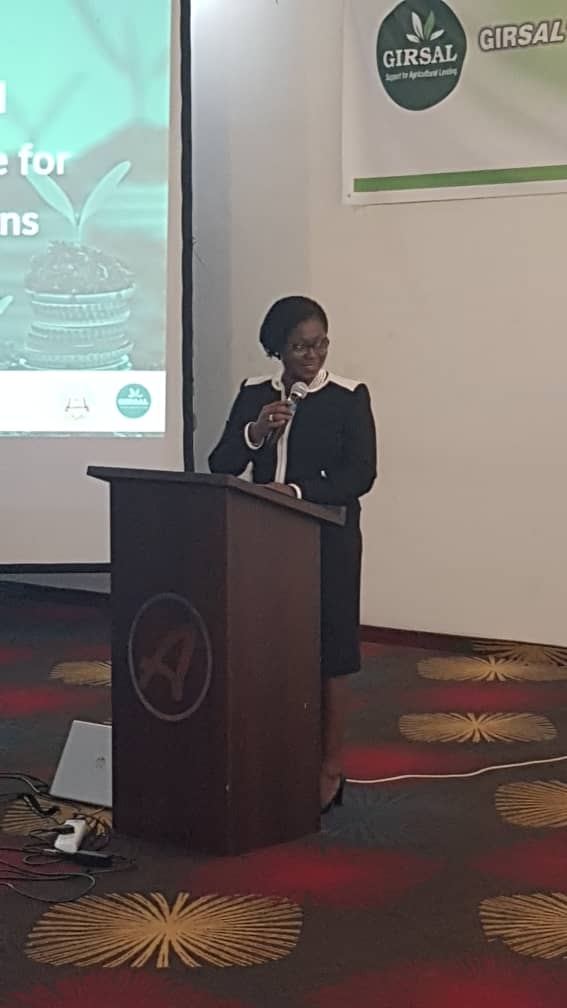In collaboration with the National Banking College, GIRSAL launched the Agriculture and Agribusiness Lending Training Programme for staff of financial institutions on 24th February 2020 at the Swiss Spirit Hotel & Suites Alisa Accra.
The training program with full funding from Alliance for a Green Revolution in Africa (AGRA) is designed to build the capacity of the staff of financial institutions to effectively assess agricultural loan applications to reduce the issue of non-performing loans. And also help improve their knowledge and understanding of the agriculture sector and its value chains, opportunities, and risks.
The special guest at the launch, Second Deputy Governor of the Bank of Ghana, Mrs Elsie Addo Awadzi, admitted that financial institutions perceive agriculture as a high-risk venture and encouraged financial institutions to adopt strategic mechanisms to change the narrative given the enormous contribution of the agriculture sector to the country’s Gross Domestic Product (GDP).
She also noted that data available to the Bank of Ghana indicate that as of January 2019, the agriculture sector’s contribution to non-performing loans in the banking sector stood at 9.44 percent. As of December 2019, 22.8% of all agricultural loans in Ghana are non-performing. Hence the training programme is very timely to help reduce this high rate of non-performing agriculture loans.
She complimented the initiative by GIRSAL and the National Banking College, as she is assured that the training programme will give players in the financial space in-depth knowledge of the agriculture and agribusiness ecosystem.
Also speaking at the event was the Chief Executive Officer of GIRSAL, Mr Kwesi Korboe affirmed that GIRSAL is committed to building the capacity of the financial institutions to effectively assess and appraise agricultural projects to reduce the issue of non-performing loans.
Mr Korboe underscored the need for financial institutions to identify appraisal techniques and innovative financing models that will inure individuals’ benefits within the agriculture and agribusiness value chain.
The launch event was organized to officially introduce the training programme to Financial Institutions, AGRA, Ministry of Finance, Ghana Commodity Exchange, Ghana Association of Bankers, National Banking College, and some farmer groups.
The Principal of the National Banking College, Madam Kessewaa Brown, expressed that the College is dedicated to using education and training to leverage risk mitigation tools to encourage financing to the agriculture sector.
Breakdown of Training Modules
Modules 1 and 2 cover the agribusiness environment, value chains in Ghana, and agricultural loan appraisal techniques and target agriculture desk officers, relationship managers, credit risk officers, and credit analysts. Module 3 will also cover managing agriculture loan portfolios, with lessons ranging from agriculture insurance to commodity finance. It targets senior management and portfolio managers.
The training participants will have the opportunity to visit agribusiness fields to have an onsite experience to translate the classroom lessons into practical on-field operations.

